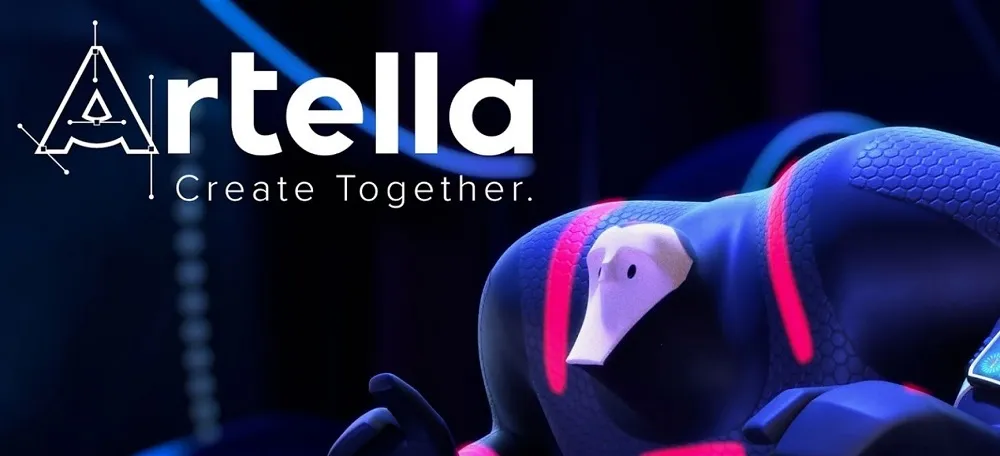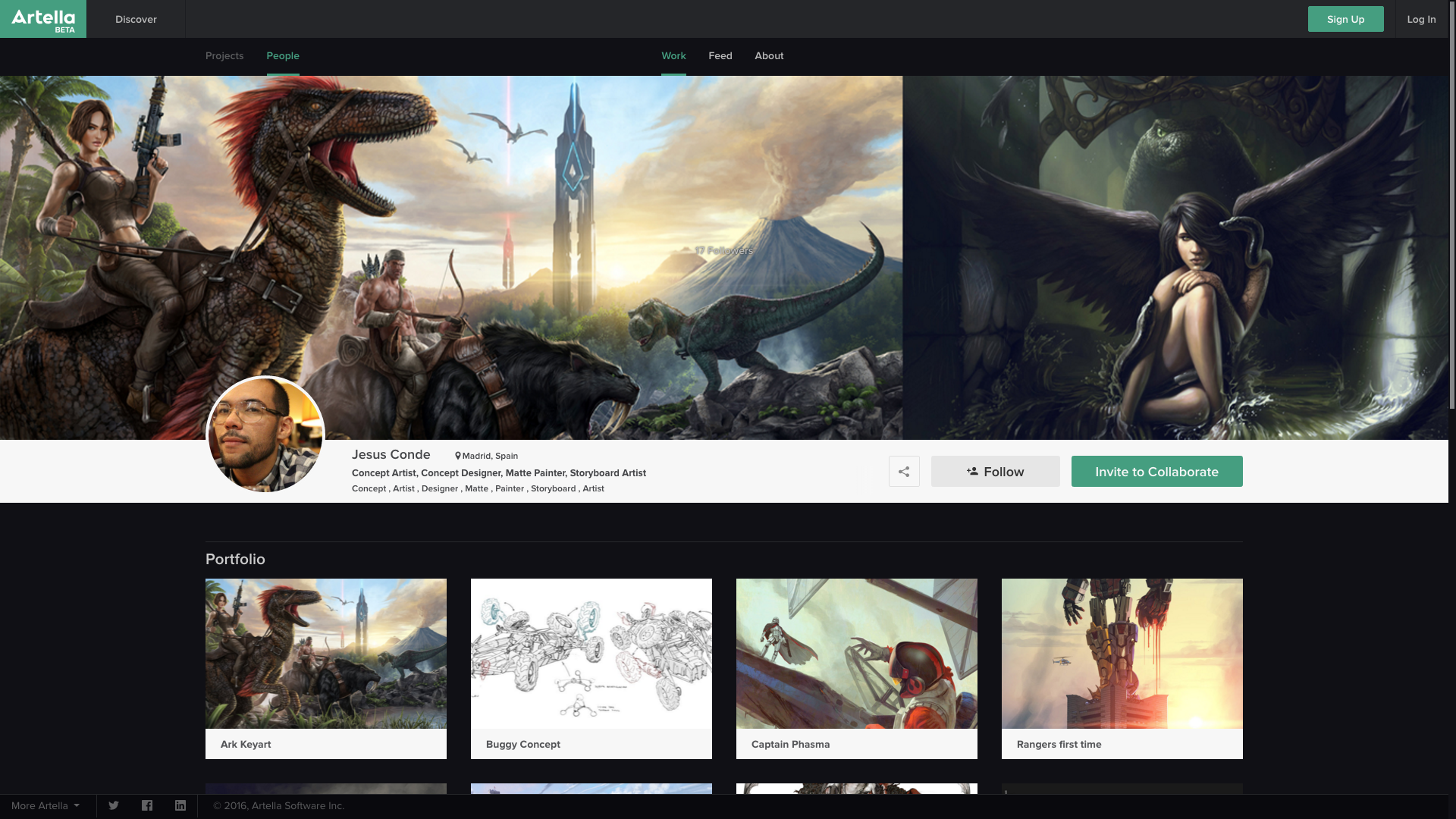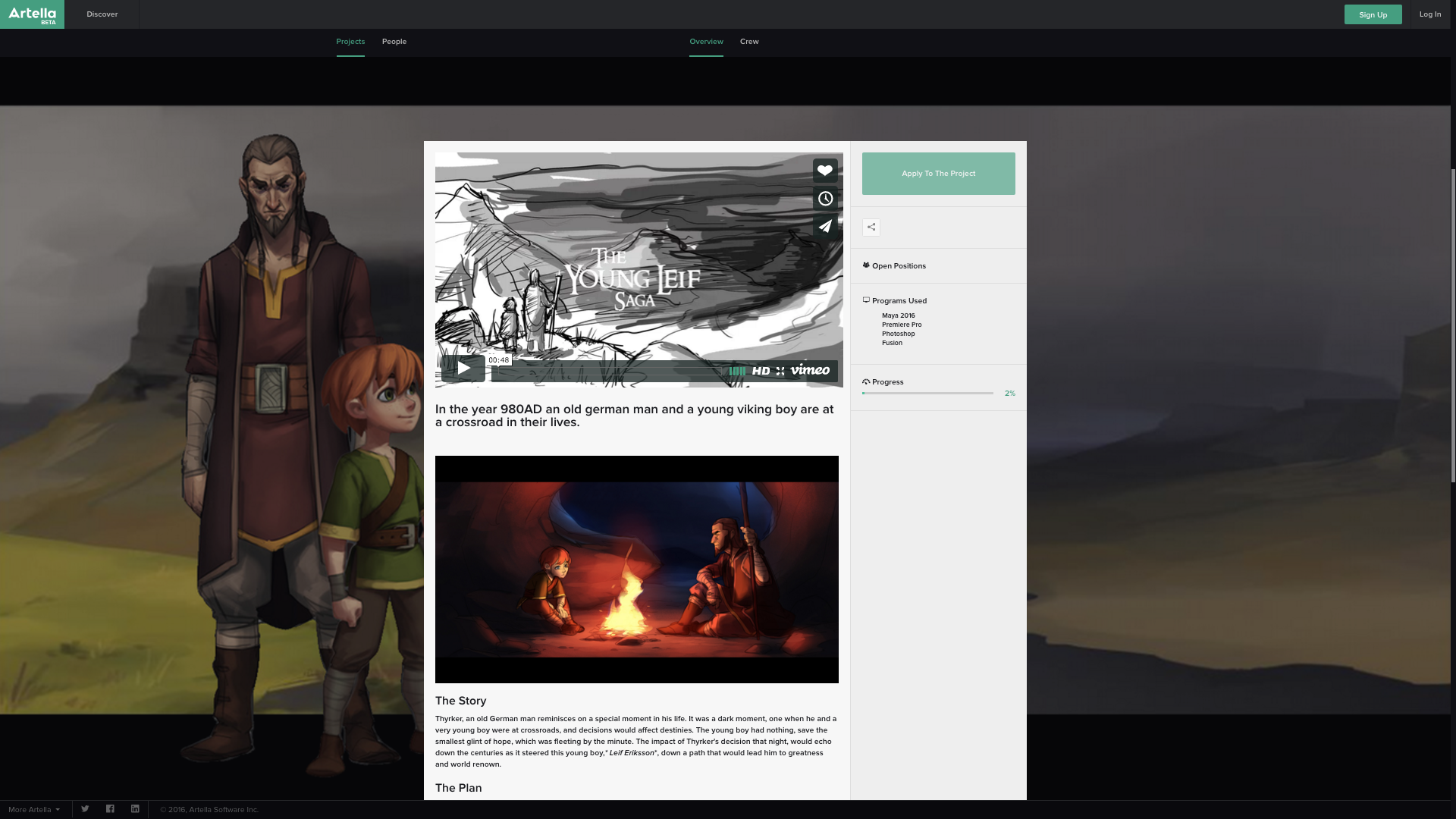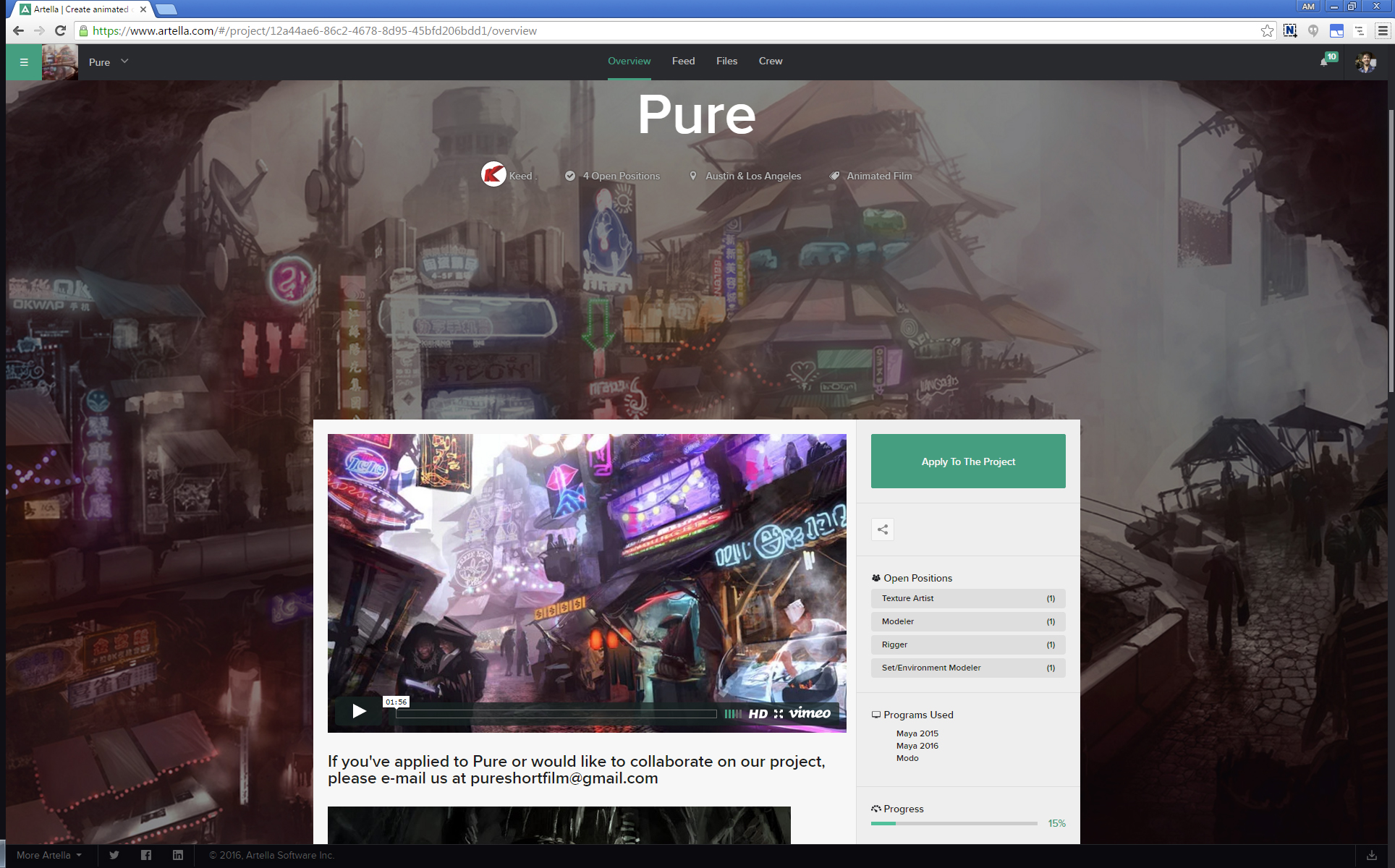Finding like-minded creatives for any type of project can be a challenge.
But Artella, a new cloud-based production platform, is aiming to make finding teams, and creating animation, graphics, and VR projects just a little bit easier.
Created by Bobby Beck, Carlos Baena, and Shawn Kelly, animators from Pixar, Paramount, and ILM who have worked on a few films you may have heard of, such as Rango, Transformers, and Toy Story 2, Artella is a platform for creatives to make project pitches, find other people who are interested in working on that project, and then manage everything within one digital studio. Since it’s a cloud-based platform, everything works even if the team members are physically split up across the globe.
“We eat our own dog food in that sense,” Bobby Beck said. The Artella team is global itself, and has members across the world working on the project, including people in San Francisco, Australia, Israel, and Finland.
Collaboration Across Borders
Artella gives creators the ability to bring people together by first helping artists connect to projects, and then helping creators on manage those projects, tasks, workflows, databases, and files.
“If you are trying to do this type of content, you need a team,” Beck said. “You need a small army of people to help you create.”
The file management part of Artella is the core of the system. To start, a manager chooses a project type to configure the pipeline for that specific project’s needs. For example, a VR project would have a different file structure than a game project. For gaming, Artella also lets users pick which game engine they are using, with current support for Unreal Engine 4.
https://www.youtube.com/watch?v=z1H1XYDf458
After that, Artella automatically creates the files and folders. If someone is actively working on a file, it displays a profile image over it, so everybody else can see who is working on what. It also has real-time chat integrated within the system, as well as an activity stream where the whole team can stay up to date, give feedback, and comment on tasks.
There’s also drawing tools, so people can draw on top of anything within the system. Video will also be added shortly, and Artella is customizable, as well.
“It really helps facilitate more the file management and keeping everything really clear, and then the communication between the people that’s there in the project is pretty dynamic,” Beck said. “We just tried to dumb it down to files and folders, which is kind of what it is in here.”
Artella has been in private beta for the past eight months, with around 30 projects during that time. In the first four days since launching the open beta, Artella has grown to over 100 projects.
Enabling Creativity
One such project got over 30 applications from all over the world and the creator told Beck that without Artella, she never would have gotten the project off the ground. And unlike a traditional brick-and-mortar animation studio with a pecking order, Artella lets people openly collaborate wherever they are, even if they aren’t in the same room, or even the same time zone.
“Even though I was a director on a few things, I learned really quickly — just like with animation — that the best stuff you get is not necessarily the stuff you have in your head.” Beck said. Instead, Beck feels the best ideas come from people working around you and he thinks that Artella breaks down these barriers for communication and collaboration very quickly.
Payment and contracts happen between the project managers and the contributors directly, with Artella not handling –or taking a cut — of the transactional side of business. It also doesn’t take any ownership in the IP or any equity in the project, with those rights staying with the creators. It’s currently free to try, and plans to stay free to join, but will eventually roll out monthly fees per user per projects billed to the creator, with different tiers ($10-$30/user) based on different creator’s needs.
“We’re really trying to just make it be like a no-brainer for creators,” Beck said.
All projects are also private, and only viewable by the people who are on them. Creators can put as much or as little information — with some minimum requirements — on each project’s initial pitch page to attract collaborators, but the pipeline and project management side is only for the team members actually working on the project. Beck added that the team thinks, in that sense, there are private projects active on the platform already.
Artella and Virtual Reality
In terms of VR, Maxwell Planck, technical founder of Oculus Story Studio, sits on Artella’s board, and is helping the company get Artella working on VR headsets. The company has also done some mobile stuff with Gear VR.
“[Artella] not only enables people to come together and create great experiences, like content,” Beck said. “But right now, VR is so new…the beauty is we have all these creators that don’t totally know yet what is VR.”
The company recently took the first minute of a short film and converted it to VR, knowing that the best VR experiences are the ones that were crafted specifically for the format.
“That’s something [where] we started going ‘Wow, we really feel we could unlock this whole world of content for VR with just a little bit of education’…that’s something that we’re really excited about,” Beck said.
Beck thinks that it’s important to educate creators and artists on what VR content looks and feels like, given a lot of people haven’t experienced it yet.
“VR is so exciting, it’s so new, it’s kind of like the Wild Wild West right now, there’s a lot of excitement around it,” Beck said. “The cool thing I think that we see is that there’s a bit of staying power to it.”
Currently, Artella’s focus is on animation, VR, video games, film, and commercials, with plans to expand into other areas as the community helps shape what they want out of the product.
And that community is central to a platform like this. Beck mentioned how sites like Artella — and others similar to it like HitRecord, GitHub, and even Kickstarter — help people become involved and immediately contribute to projects and be a part of a creative endeavor, regardless of their schooling or background.
“There’s a whole world of untold stories out there that are just so amazing,” Beck said. “And I think that that’s been the most exciting part for me, is to see how people bring different styles together.”
And with Artella projects now moving forward — Beck mentioned one company called High Fidelity that ran a hackathon on Artella at the Upload Collective to create 27 characters in three days — it’s exciting for the team to watch and see the platform they’ve created take on a shape of its own through the community.
“I think at that point we all stepped back and we said ‘This thing has a life of its own now, it’s not just us anymore, it’s now been born and it now has wings.'”
—
Article contributed by Willie Clark. Willie is a freelance writer with work appearing in prominent publications such as VentureBeat, Polygon, Vice, Killscreen, and multiple print publications and newspapers. You can follow him on Twitter: @_WillieClark.

































